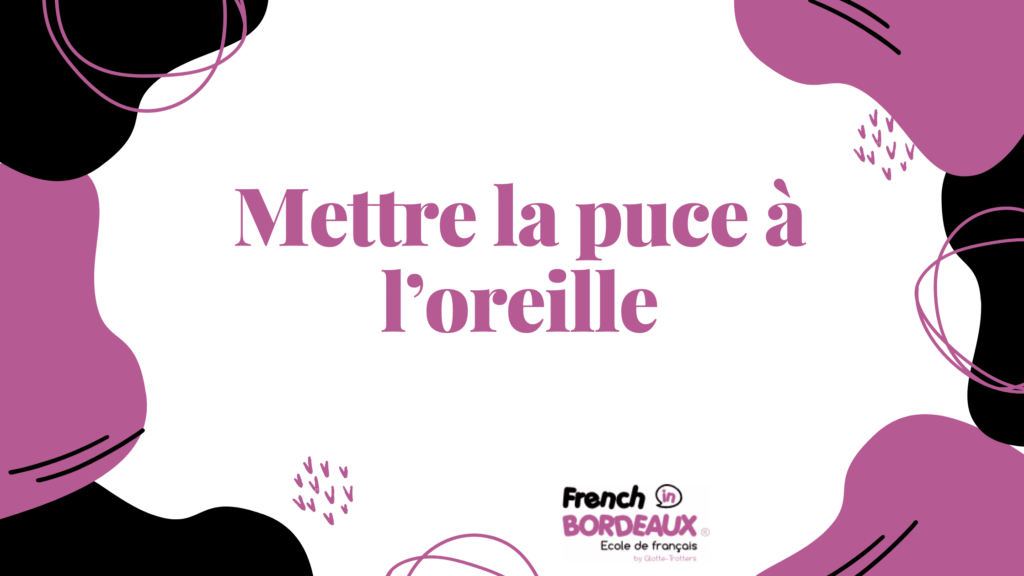
Can you imagine someone putting a flea into your ear? What an unpleasant feeling! Fortunately, it’s just a figure of speech. But, it hasn’t always had the same meaning.
The origins of the expression
This expression has changed its meaning from century to century. It was first used in the XII century, written like this “mettre la puche en l’oreille”. In those times, the fleas infected everything in spite of the social status, and used to put the host through a torment of itching and scratching. However, the meaning of this phrase had nothing to do with this situation, instead it meant to provoke or have a romantic desire. This last meaning was linked to the belief that the ears represented the feminin sexuality.
Later in the XVII century, the expression suffered some transformations : “en” was replaced by “à” and it acquired the meaning of being uneasy and anxious. It’s as if one felt a flea coming into one’s ears and fearing the internal itching. At the same time, people started associating the itching in the ears with people talking behind one’s back. In this way, we could say that the modern meaning is the result of the two phenomena combined together.
So, what’s its meaning?
Imagine you’re in the forest with a friend and they tell you there’s a high risk of getting fleas into your ears. How would you feel? How would you react? Naturally, uneasiness would take hold of you, but at the same time you would be very, very alert ! This is what this expression means. To be in a state of readiness, very attentive to the environment and potential threats. It also means to be wary of something or someone. So, we could say that new expressions in French “te mettent la puce à l’oreille”!
How and when do we use this expression?
Imagine you’re a kid and at the end of your school day you always walk back home, because you don’t live very far. One day, your mom starts picking you up at school without notice. She even talks to your classmates. This behavior intrigues you, “ça te met la puce à l’oreille” since you live only three blocks from school. You start suspecting something and start asking questions to your mom but she never answers, she “tourne autour du pot”. One week later you have a surprise birthday party and you understand why your mom was picking you up regularly and talking to your classmates. She was indeed organizing everything to celebrate your birthday!
How would you say this expression in the languages you speak?
By Ingrid Hernandez
We have set up some quizzes so that you can better understand this expression. Just click below to access these quizzes.